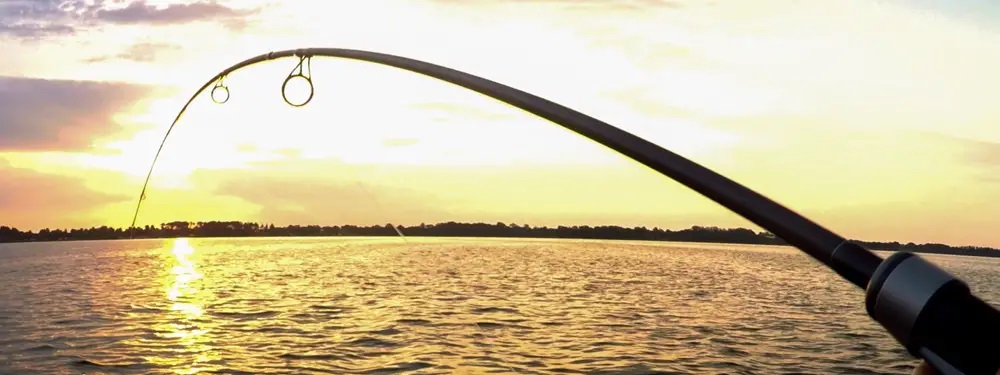Yes, you can use a carp rod for sea fishing, but there are a few important things to keep in mind. Carp rods are typically designed for freshwater fishing, and they may not be the best choice for all types of sea fishing.

Fishing Location
The type of sea fishing you plan to do and the location you’ll be fishing in will determine whether a carp rod is suitable. If you’re fishing from a pier, jetty, or rocky shore, a carp rod may not be the best option because you might need a longer, more robust rod to cast your bait further and handle the potentially larger fish found in the sea.
For example, if you’re fishing from a pier and targeting bass, you’ll want a rod that can cast a heavy lure a long distance. A carp rod is unlikely to be powerful enough for this task.
However, if you’re fishing from a boat in calmer waters and targeting smaller fish such as mackerel, a carp rod could be a good option.
Rod Length
Carp rods are often shorter, typically ranging from 9 to 12 feet, whereas sea fishing rods are generally longer to allow for longer casting distances. Sea fishing rods typically range from 10 to 15 feet or even longer, depending on the specific type of sea fishing (surfcasting, boat fishing, etc.).
A longer rod is generally better for casting further distances, which is often necessary in sea fishing. This is because sea fish are often more widely dispersed than freshwater fish.
Rod Power and Action
Sea fishing often involves targeting larger and more powerful fish compared to carp fishing. Sea fishing rods are designed with heavier power ratings and faster actions to handle the strength and size of saltwater species. Carp rods may be too light for this purpose.
Rod power refers to the amount of weight a rod can handle. A rod with a higher power rating is designed to handle heavier weights, which is important if you’re targeting large fish.
Rod action refers to how a rod bends when pressure is applied. A rod with a faster action bends more in the top third of the rod, while a rod with a slower action bends more evenly throughout the rod. A rod with a faster action is better for setting hooks and fighting large fish.
Line and Reel Compatibility
If you intend to use your carp rod for sea fishing, you’ll need to match it with an appropriate reel and fishing line. Sea fishing often requires thicker and more durable lines, and your carp reel may not be suitable.
Saltwater is more corrosive than freshwater, so you’ll need to use a reel and line that are designed for saltwater use.
Saltwater Corrosion
Saltwater can be corrosive to fishing gear, so if you use a carp rod for sea fishing, make sure to clean it thoroughly after each use and consider investing in a rod designed for saltwater use, which is typically more corrosion-resistant.
You can clean your rod with a damp cloth and a mild soap solution. Be sure to rinse the rod thoroughly with fresh water after cleaning.
Target Species
Consider the size and type of fish you’re targeting. If you’re after smaller species or inshore fishing, a carp rod might suffice. However, if you’re targeting larger offshore species, a specialised sea fishing rod would be a better choice.
For example, if you’re targeting small inshore fish such as mackerel, a carp rod could be a good option. However, if you’re targeting larger offshore fish such as tuna, you’ll need a more powerful and durable rod.
Summary
While it’s possible to use a carp rod for sea fishing in certain situations, it’s generally recommended to use a rod specifically designed for saltwater fishing. Sea fishing rods are built to handle the unique challenges of fishing in the ocean, including casting longer distances and dealing with larger, stronger fish. Using the right equipment will enhance your chances of success and enjoyment when sea fishing.
